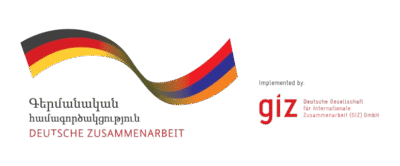Teaching art specialties in VET institutions

"Teaching of creative arts professions in vocational educational programs of primary (craft) and secondary vocational educational institutions has started in Agveran. challenges" workshop, which is attended by representatives of colleges and universities, art universities, the National Center for the Development of Vocational Education and Training, international institutions and the Ministry of Education and Culture.
Artak Aghbalyan, Head of the Primary (Vocational) and Secondary Vocational Education Department of the RA Ministry of Internal Affairs, Minister of Internal Affairs L. On behalf of Mkrtchyan, he welcomed the participants of the workshop, wishing for a productive discussion. He also noted that the workshop was organized within the framework of the mandate given during the working consultation convened with the participation of the Minister of Education. "Until August, VET development strategy, action plan and schedule for 2017-2021 should be developed. We consider the development of sectoral, including art professions, as a separate direction in the VET development strategy. The aim of this workshop is to highlight all the existing problems through discussions, to form profitable proposals that will be useful for the development of presented programs, improvement and development of the quality of education in art specialties", said A. Aghbalyan.
Tatevik Gasparyan, the director of MKUZAK, emphasized in his speech that about two dozen educational standards have been developed for art professions. They are implemented in 12 VET institutions and are regularly revised taking into account the proposals received from educational institutions and the evolving demands of the labor market.
During the workshop, speeches were made by Yerevan Regional No. 1, P. Terlemezyan Fine Arts, Yerevan A. Babajanyan State Music and Pedagogical, Armavir State Colleges of Art and Yerevan State Art and Crafts College named after Babajanyan. They mainly referred to the educational standards of the respective professions and modular training, which in some cases, based on professional characteristics, causes certain problems in the training process.
The participants of the workshop emphasized the transition from college to university. During the discussion, it was emphasized that taking into account the fact that part-time education in art majors is generally not organized in universities, a problem arises from the point of view of ensuring the continuity of students' education. A question was also raised regarding the revision of the list of VET specialties/qualifications and duration of training.
During the workshop, group discussions were held with the thematic orientation of various professions, the recommendations related to the development of art professions in the VET reform program of 2017-2021 were discussed.






















